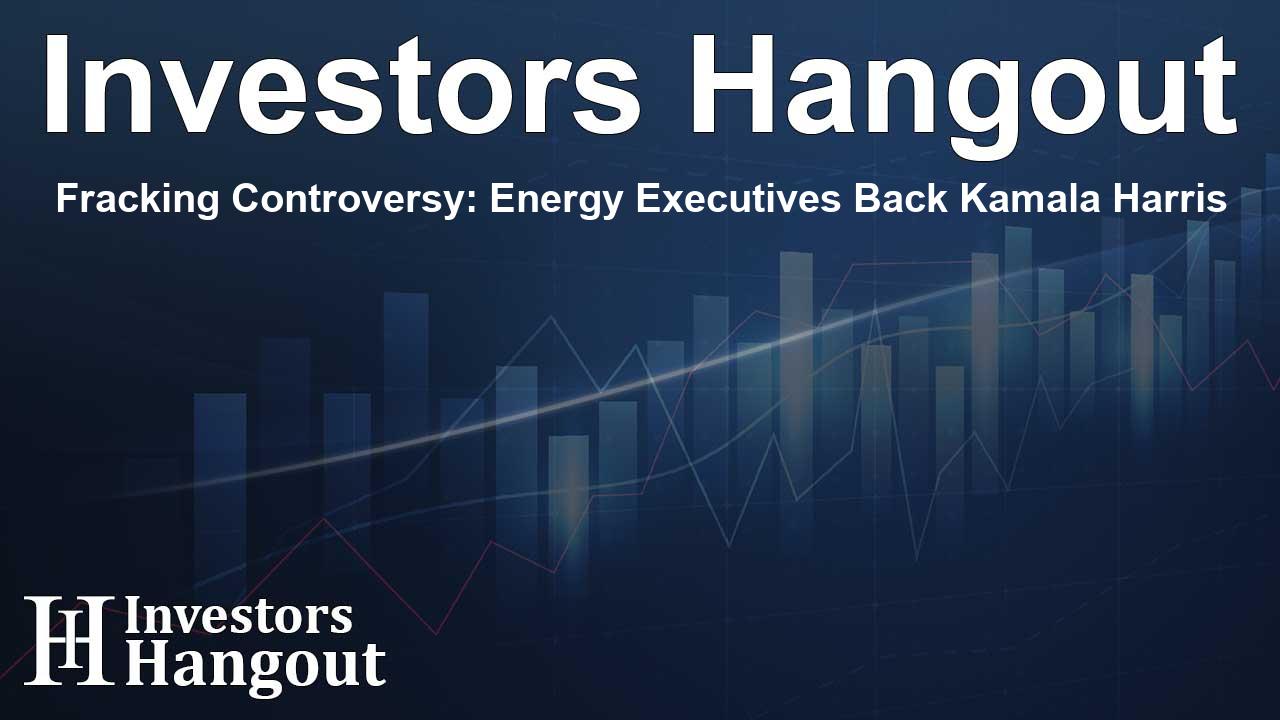Fracking Controversy: Energy Executives Back Kamala Harris

Energy Executives Rally Behind Kamala Harris on Fracking
Energy leaders are expressing confidence in Vice President Kamala Harris’s recent statements regarding fracking. During conversations at a major industry conference, executives indicated they believe Harris is sincere in her commitment to uphold fracking practices, particularly if she secures the presidency in an upcoming election.
Fracking's Role in the U.S. Economy
Fracking has become a focal point in the U.S. presidential race, especially given its significance in states like Pennsylvania. Harris, previously against fracking during her tenure as a U.S. Senator, has shifted her position and now asserts that she will not pursue a ban on fracking on federal lands. This pivot is particularly noteworthy as energy executives highlight the critical role that fracking plays in maintaining stable natural gas prices for consumers.
Harris vs. Trump: Energy Policies at Stake
In the current electoral landscape, Harris finds herself in direct competition with her Republican counterpart, former President Donald Trump, who staunchly supports fracking. Trump’s assertions present a contrasting view, as he claims Harris might aim to limit or eliminate fracking should she be elected. The disparity in their energy policies is a significant point of contention in the campaign.
Insights from Industry Leaders
Jack Fusco, CEO of Cheniere Energy, the largest exporter of liquefied natural gas (LNG) in the U.S., shared his thoughts during a panel at the GasTech conference. He emphasized the necessity of fracking for maintaining lower natural gas prices and expressed his trust in Harris to advocate for the practice unless proven otherwise. Fusco’s facility at Sabine Pass is noted for being a primary hub for LNG exports and underscored the broader implications of fracking on the energy market.
The Economic Consequences of Ending Fracking
Another key voice at the event, Meg O'Neill, the CEO of Woodside, voiced similar sentiments. Woodside is currently in the process of acquiring Tellurian, which adds to its footprint in the LNG sector. O'Neill articulated the risks of ceasing fracking in the U.S., predicting it could lead to detrimental effects on the economy. She suggested that Harris may not have fully grasped the benefits of fracking when she initially opposed it.
Rethinking Energy Policies
O’Neill noted, “If you stop fracking in the U.S., it will be devastating for the economy.” Her perspective reflects a necessity for a comprehensive understanding of the economic landscape influenced by energy extraction practices. The statements made by Harris in her previous role may have lacked insight into the broader consequences of her opposition, she suggested. This dialogue illustrates a critical intersection of policy, economics, and public perception surrounding energy production in America.
Concluding Remarks from Industry Executives
The executives interviewed at the GasTech conference concurred that a balanced approach to energy transition is vital. As Harris navigates her campaign, the importance of fracking in energy production remains a contentious yet crucial topic. With both candidates vigorously appealing to voters in Pennsylvania, where natural gas extraction is a dominant industry, the policies they advocate will likely influence the trajectory of the nation's energy sector.
Frequently Asked Questions
What is fracking and why is it significant?
Fracking, or hydraulic fracturing, is a method used to extract oil and natural gas from deep underground. It is significant because it impacts energy prices and local economies involved in gas production.
How has Kamala Harris’s position on fracking changed?
Kamala Harris initially opposed fracking but has since stated that she would not ban it on federal lands, recognizing its importance for energy prices.
What do energy executives think of Harris’s stance?
Many energy executives believe that Kamala Harris is credible in her support of fracking and understand its economic benefits, especially relating to natural gas prices.
What are the potential consequences of halting fracking?
Halting fracking could result in significantly higher energy prices and adversely affect the U.S. economy, particularly in states reliant on natural gas production.
How do current elections influence energy policy?
Current elections can significantly influence energy policy, with candidates presenting diverging views on practices like fracking, affecting legislative decisions and industry stability.
About The Author
Contact Addison Perry privately here. Or send an email with ATTN: Addison Perry as the subject to contact@investorshangout.com.
About Investors Hangout
Investors Hangout is a leading online stock forum for financial discussion and learning, offering a wide range of free tools and resources. It draws in traders of all levels, who exchange market knowledge, investigate trading tactics, and keep an eye on industry developments in real time. Featuring financial articles, stock message boards, quotes, charts, company profiles, and live news updates. Through cooperative learning and a wealth of informational resources, it helps users from novices creating their first portfolios to experts honing their techniques. Join Investors Hangout today: https://investorshangout.com/
The content of this article is based on factual, publicly available information and does not represent legal, financial, or investment advice. Investors Hangout does not offer financial advice, and the author is not a licensed financial advisor. Consult a qualified advisor before making any financial or investment decisions based on this article. This article should not be considered advice to purchase, sell, or hold any securities or other investments. If any of the material provided here is inaccurate, please contact us for corrections.
